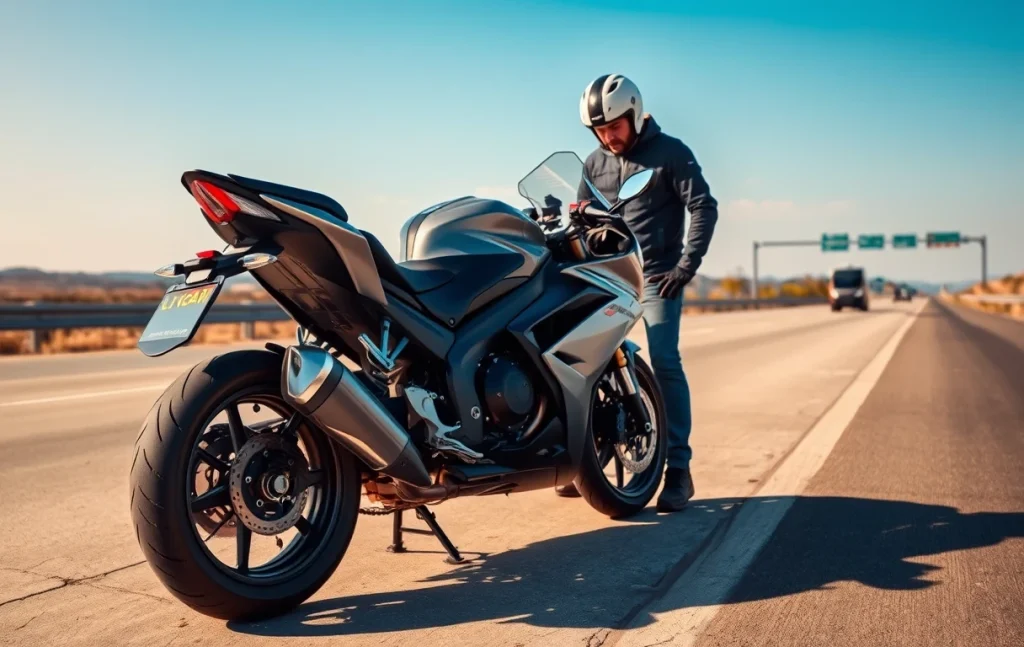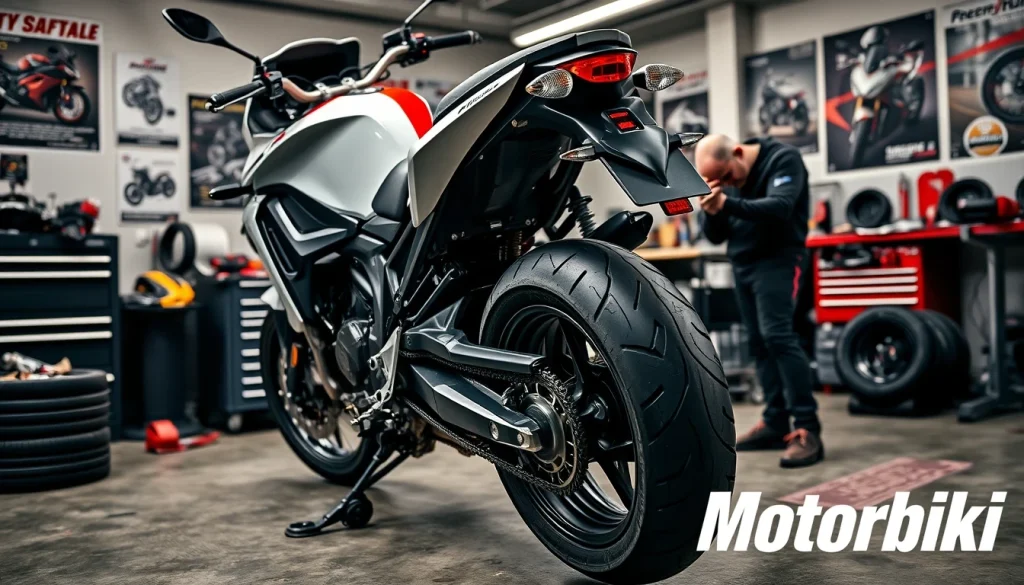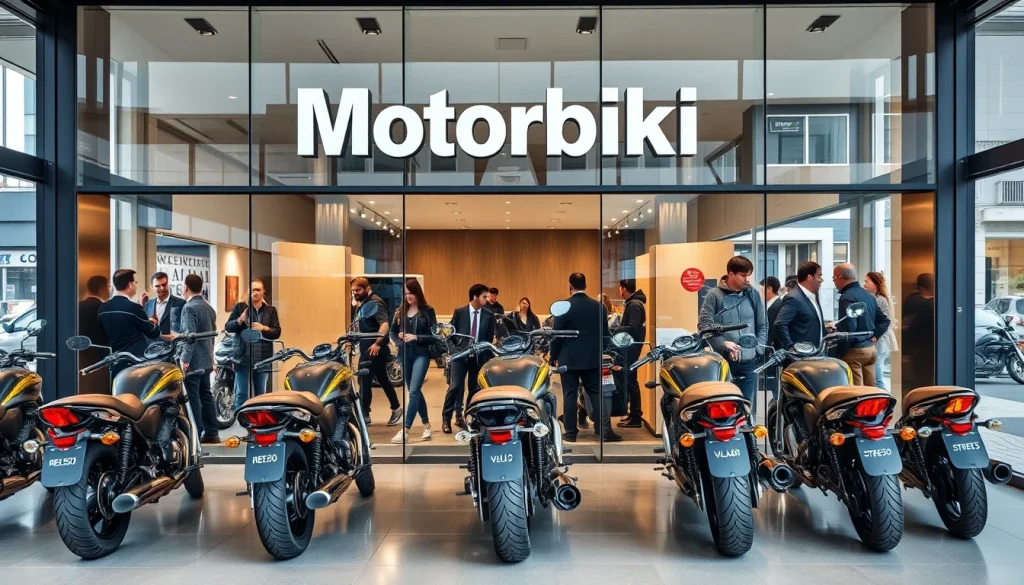Motorcycle Engine Knocking Problem: Causes, Best Fixes, and Prevention (2025 Guide)
Motorcycle Engine Knocking Problem
Do all knocking sounds indicate engine knocking?
Not necessarily. Some sounds may come from a loose chain, valve clearance, or camshaft wear. True engine knocking is rhythmic, metallic, and often accompanied by performance loss.

Can bad engine oil cause engine knocking?
Yes. Poor quality or low engine oil can cause increased friction and heat, leading to premature combustion and knocking.
Can I use engine additives to stop knocking?
Some high-quality fuel additives can help reduce carbon build-up and improve combustion quality, especially when used regularly. However, additives are not a cure for mechanical faults.
Does riding uphill or with a heavy load cause knocking?
Yes. Riding under heavy loads in high gears at low RPM can increase combustion pressure and trigger knocking in poorly tuned engines.
Should I worry if my engine knocks only at high RPM?
Yes. Knocking at high RPM can signal ignition or fueling problems that should be addressed promptly to avoid internal damage.
Expert Tips to Prevent Engine Knocking in Motorcycles
Preventing motorcycle engine knocking is easier than repairing its damage. Use the following long-term tips:
- Stick to recommended fuel: Always fill with the correct octane rating. Never compromise with low-grade fuel.
- Tune your engine regularly: Regular ECU or carburetor tuning ensures ideal air-fuel ratios and proper ignition timing.
- Maintain cooling systems: Keep the radiator clean, check coolant levels, and don’t ignore warning lights.
- Use manufacturer-approved engine oil: Change oil on schedule and choose synthetic oil for better thermal protection.
- Avoid overloading and riding in high gear at low speed: This driving habit increases engine load and detonation risk.
- Replace spark plugs timely: Always use the correct plug type and gap settings.
- Service on time: A well-maintained engine is less likely to knock.
Real Rider Feedback
Rashid H. – Suzuki GSX-R Owner, UAE
“I once used low-octane fuel during a long ride, and within 50 km, I started hearing knocking. I learned the hard way. After switching to high-octane fuel and synthetic oil, the problem vanished.”
Laura M. – Kawasaki Ninja 300, UK
“My bike started knocking uphill. A mechanic found I had carbon buildup in the combustion chamber. After cleaning and tuning, it’s smoother than ever.”
Junaid A. – Yamaha FZ, Pakistan
“Cheap fuel and late spark plug changes caused constant engine pinging. After following a strict maintenance routine, no more knocking issues.”
Motorcycle Engine Knocking: Causes, Symptoms, and Fixes
| Cause | Common Symptoms | Recommended Fix |
| Low-Octane or Poor-Quality Fuel | Metallic pinging noise, loss of power, high engine heat | Use premium/high-octane fuel as recommended by the manufacturer |
| Incorrect Ignition Timing | Early detonation, knocking under load, poor acceleration | Reset ignition timing to factory specs |
| Carbon Deposits in the Engine | Knocking under acceleration, overheating, rough idling | Use fuel system cleaners or get professional decarbonization |
| Lean Air-Fuel Mixture | The engine runs hotter, pinging sound, and poor throttle response | Tune carburetor/ECU for correct air-fuel balance |
| Engine Overheating | High temperature warning, pinging noise at idle or low RPM | Check the coolant system, improve ventilation, and avoid high-load use |
| Worn Spark Plugs | Misfiring, knocking on cold start, fuel inefficiency | Replace spark plugs with OEM-recommended ones |
| Poor Engine Oil Quality | Increased engine friction, knocking during long rides | Change to high-grade synthetic motorcycle engine oil |
| Heavy Load or Low-Speed High-Gear Riding | Knocking uphill or with passenger/load | Shift to lower gear when climbing or accelerating |

User Reviews and Feedback on Motorcycle Engine Knocking
Kamran H. – Honda CB150F Rider, Pakistan
I noticed a sharp metallic sound from my engine during uphill rides. At first, I ignored it, thinking it was a chain issue. But later, a mechanic identified it as engine knocking caused by low-grade fuel. After switching to high-octane petrol and using Liqui Moly fuel treatment, the sound completely vanished. Since then, I’ve become very careful about fuel quality.
Jason R. – Yamaha MT-15 Owner, Philippines
My bike began knocking only during hard acceleration. I thought it was normal, but it kept getting worse. The problem turned out to be poor ignition timing and carbon buildup. I had the ECU remapped and used a decarbonizing spray. Performance improved immediately, and there’s no more pinging sound.
Fatima S. – KTM Duke 200, UAE
Being a daily commuter, I frequently ride in hot weather. My engine started knocking and losing power. A technician told me it was due to overheating and old spark plugs. After replacing the plugs and switching to synthetic oil, my Duke now runs cooler and quieter. I learned how important engine cooling is.
Diego M. – Bajaj Pulsar 180, India
The knocking in my engine was due to a lean fuel mixture. It caused constant pinging during slow-speed rides in traffic. I got the carburetor tuned and changed the fuel filter. It’s been smooth ever since. Regular tuning really matters in our city conditions.
Lauren K. – Kawasaki Ninja 300, USA
After noticing a soft knocking noise at high RPM, I consulted a mechanic who recommended cleaning the injectors and switching to premium fuel. I also started using Motul 7100 oil. That solved the issue permanently. Now I schedule full servicing every 5,000 miles.
Top 10 Motorcycles Known for Engine Knocking Issues (Based on Rider Feedback & Forums)
Engine knocking can affect any motorcycle, especially under poor maintenance or fuel conditions. However, based on rider forums, service center data, and mechanic reviews, here are 10 bikes commonly reported to experience engine knocking issues in certain models or years:
| Rank | Motorcycle Model | Engine Type | Reported Year Range | Common Knocking Cause |
|---|---|---|---|---|
| 1️⃣ | Harley-Davidson Street 750 | V-Twin | 2015–2020 | Poor valve clearance, carbon buildup |
| 2️⃣ | KTM Duke 390 | Single-cylinder | 2017–2023 | Low octane fuel, piston slap |
| 3️⃣ | Royal Enfield Classic 350 | Single-cylinder | 2012–2022 | Ignition timing issues |
| 4️⃣ | Yamaha R3 | Twin-cylinder | 2016–2021 | Lean fuel-air mix |
| 5️⃣ | Honda CBR500R | Twin-cylinder | 2014–2020 | Timing chain stretch |
| 6️⃣ | BMW G310GS | Single-cylinder | 2018–2023 | Improper spark timing |
| 7️⃣ | Bajaj Dominar 400 | Single-cylinder | 2017–2021 | Overheating, valve issues |
| 8️⃣ | Ducati Scrambler 800 | L-Twin | 2015–2020 | Detonation under high load |
| 9️⃣ | Suzuki GSX250R | Twin-cylinder | 2017–2022 | Low-quality fuel & spark plug wear |
| 🔟 | Benelli TNT 300 | Twin-cylinder | 2015–2019 | ECU tuning, detonation under throttle |
Average Engine Replacement Cost for the Top 10 Bikes
Below is a professionally prepared table showing estimated engine replacement costs for these motorcycles. These figures include parts and labor (USD equivalent, 2025 rates):
| Motorcycle Model | Engine Replacement Cost (USD) | Parts Included |
|---|---|---|
| Harley-Davidson Street 750 | $3,500 – $4,200 | Full V-Twin Engine, Labor, Fluids |
| KTM Duke 390 | $1,800 – $2,300 | Engine Assembly, Coolant, Labor |
| Royal Enfield Classic 350 | $1,400 – $1,800 | Cylinder Kit, Head, Carb, Labor |
| Yamaha R3 | $2,200 – $2,800 | Full Engine, ECU Check, Fluids |
| Honda CBR500R | $2,800 – $3,300 | Engine Unit, Injectors, Sensors |
| BMW G310GS | $3,000 – $3,800 | Single Engine Unit, Programming |
| Bajaj Dominar 400 | $1,600 – $2,100 | Short Block, Head, ECU Update |
| Ducati Scrambler 800 | $5,000 – $6,500 | L-Twin Assembly, Timing Belts |
| Suzuki GSX250R | $2,000 – $2,500 | Engine Block, Plug & Valve Kit |
| Benelli TNT 300 | $2,300 – $2,900 | Twin Engine, Cooling System |
Note: These are estimates based on USA/International average prices in 2025. Local service center charges may vary.

Conclusion
Motorcycle engine knocking is a serious issue that should never be ignored. Whether caused by low-quality fuel, carbon deposits, or poor ignition timing, knocking can degrade engine performance, reduce fuel economy, and lead to expensive repairs. Fortunately, most cases are preventable with regular maintenance and smart riding practices.
By understanding the causes of engine knocking in bikes, recognizing early symptoms, and knowing how to fix engine knocking in motorcycle engines, riders can extend the life of their bike and ensure a safer, smoother experience on the road.
Whether you ride daily or just on weekends, stay proactive. Invest in quality fuel, oil, and regular tune-ups. In the long run, it’s not just good for your motorcycle — it’s peace of mind for every ride.







